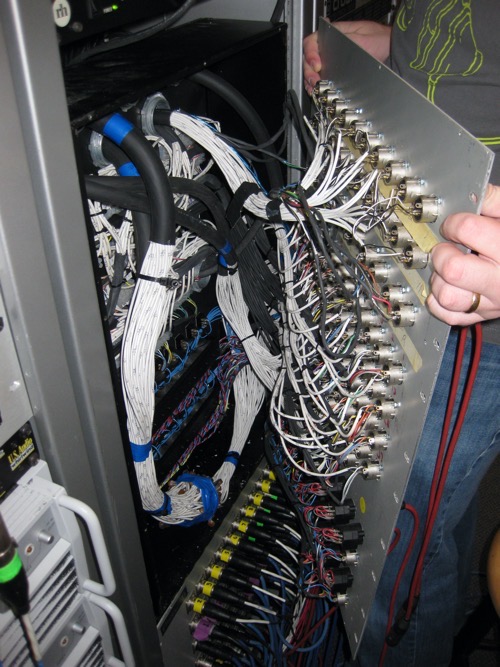How Do I Fix “X”?

There’s a question far too many people aren’t asking when making equipment purchasing decisions:
How Do I Fix This?
While spending over a decade working on church staff’s, this became a very big question for me whenever I was looking at new gear. There are popular brands with gear I love the sound of that I will never invest in simply because it was awful trying to get things fixed when I was on staff. When you are purchasing gear or doing a big upgrade, you should be asking your integrator how you’re going to fix things when they break because sooner or later everything breaks.
I know a lot of people don’t ask this, though, because I see a lot of questions come up on social media regarding broken equipment and stuff that just isn’t working.
So who do you call when your stuff isn’t working, and you didn’t already have a plan in place? Here’s my opinion:
1. Your Integrator
The first call you make should be to your integrator who sold you the gear and/or designed your system.
Asking good questions about service and repair should be part of your process in vetting an integrator. Many of them include warranties and service plans when they install your equipment, and even if they don’t, the good ones will be interested in helping you. Some integrators are large enough that they’ll be able to help you directly. Not all integrators have the capacity or margin to directly perform service, but at a minimum, they should be able to point you in the right direction to get things fixed.
What if you don’t have an integrator or your integrator can’t help?
2. The Manufacturer
Reach out to the manufacturer.
Every manufacturer I know of has a service contact somewhere on their website. Call them. Email them. Fill out the form. Whatever their method is, this is your first step. This may also be where you start realizing how important it is to ask that big money question when you’re buying gear: How do I fix this?.
Some manufacturers will need you to ship things in for repair. Others may have a local service provider help you. Either way, check with the manufacturer.
For example, whenever I had issues with our old Avid consoles, I always had a new part the next day if something stopped working. I’d just call their console hotline, talk to a rep, and if I couldn’t resolve it without a part there was one at the door first thing the next morning. Before I was able to start repairing the consoles myself, I remember they also sent a tech out and had techs throughout the country for this. That’s a big reason why I was a fan of the consoles.
What about getting local service yourself?
For some equipment–especially more vintage in nature–this is also a viable option. The analog consoles we used at North Point before moving to digital were serviced this way, although, the service wasn’t quite local. We shipped consoles out for repair to an independent shop a couple times or had someone come down from Nashville. We might have had some amplifiers serviced locally as well.
If you have a great tech locally who can help you, that’s great. In my experience, these can be difficult to track down even in spite of in the internet. I’ve been in Atlanta for 15 years now, and I wouldn’t know who to call at this point. I do, however, have some friends I would talk to. So if you’re trying to find someone, check with other production folks in your area for referrals. Manufacturers reps may also be able to point you to someone who can help.
Personally, I get support calls on occasion about things like Waves plug-ins and Avid consoles. I help when I can, but in a lot of cases I just end up sending folks to the manufacturers. Most of the support services I provide are regarding loudspeaking tuning/optimization and systems consulting.
Speaking of loudspeaker tuning and optimization, with churches opening back up around the country now is a great time to get your systems tuned up to make a great impression on everyone returning. I am traveling once again for training and system tuning. Head over to my Contact page and drop me a line because I’d love to discuss how I can help you get your audio in great shape this year.

 Previous Post
Previous Post Next Post
Next Post



We hit this with our PA. One box failed under warranty and we took it to the authorized repair place. Part took a week or two to come in.
Repair was also a consideration in our decision to go with LV1. We can afford to have on hand a spare soundgrid server and stage box and the rest is just off-the-shelf or make-it-yourself computer stuff.